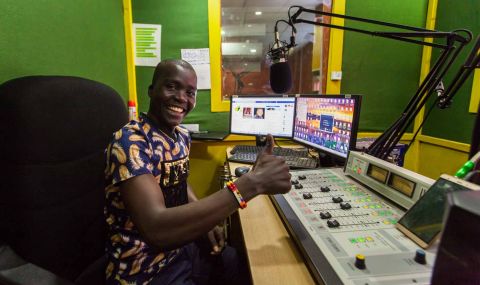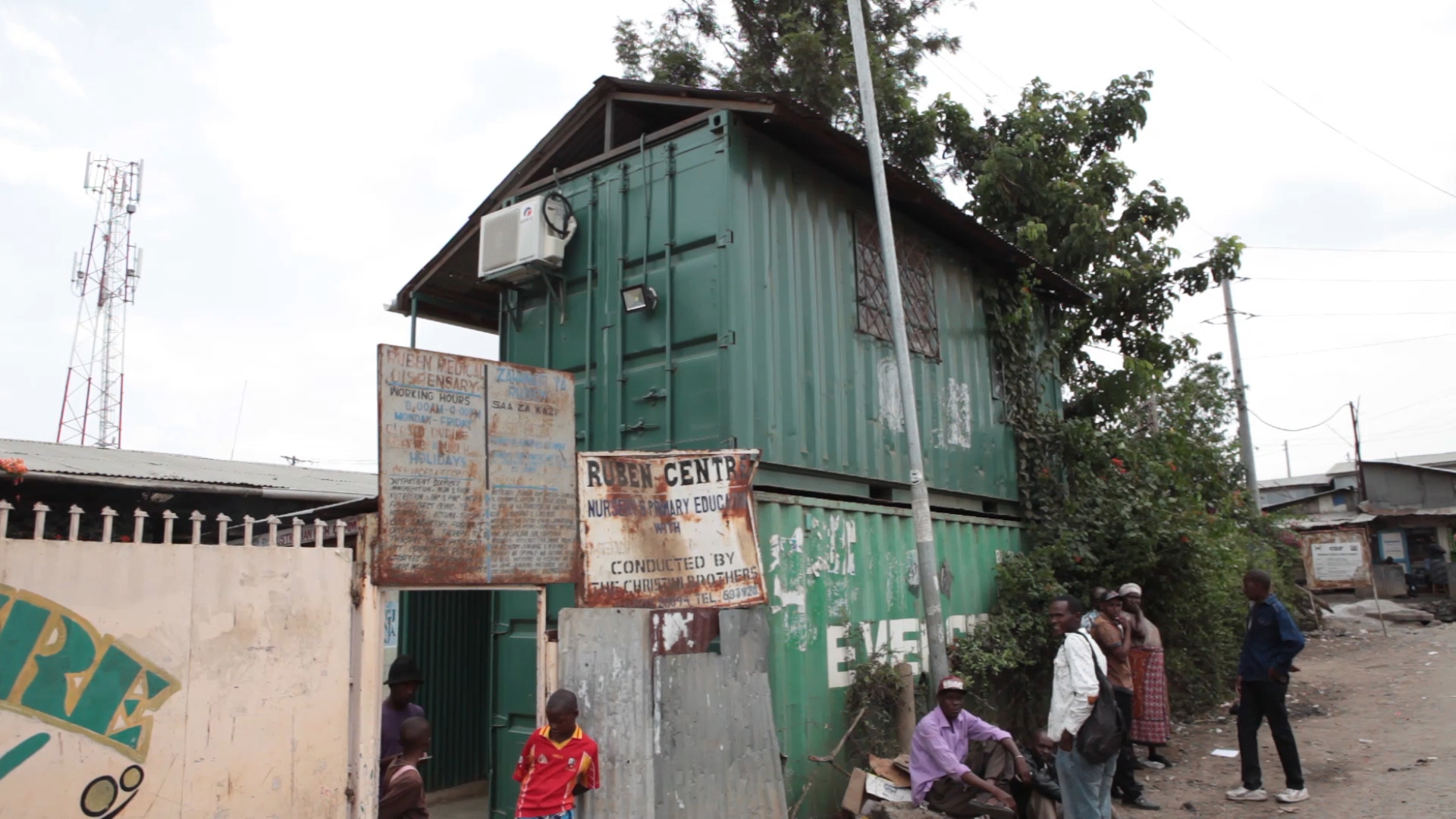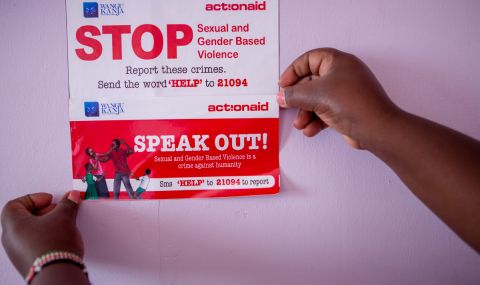Meet the DJ helping end gender-based violence through community radio
Meet the DJ helping end gender-based violence through community radio

203898-thomas-radio-dj-optim .
Dreaming of being a journalist
Thomas wanted to be a journalist ever since he was a boy. "I had a passion for journalism while still in primary school," he remembers.
His mum and dad had other ideas.
"My parents wanted me to be a teacher, but that was not in my mind."
Despite this, Thomas was determined to pursue his dream. And it's this determination that has got him to where he is today.
In the space of a few years he went from Head of Journalism Club at school to the Manager at Ruben FM - a community radio station discussing important local topics to an audience of 700,000 people.
Moving to the big city
In 2012, Thomas moved to Kenya's capital, Nairobi, to study Journalism and Mass Communication at college. While studying, he got his first job, volunteering for a community radio station – Get FM.
Thomas was such a natural that after six months he was promoted to Radio Presenter, and soon promoted again, to Station Manager.
After two years there, he was looking for a new challenge and joined Ruben FM, based in Mukuru slum on the outskirts of Nairobi, where ActionAid has been working for many years.
"There was no studio, it was just a container, an office with one laptop."
So Thomas built the team and their radio programmes from scratch in their small studio container.

Running a community radio station
Thomas is really proud of what they do at Ruben FM: "What makes Ruben FM special and different from other community radio station is content."
He explains how community radio stations, unlike profit-oriented commercial radio stations, are supposed to empower the community, but often that's not the case.
"I've seen most of the community radio stations in Kenya - they are really trying to compete with commercial radio stations."
But he and his team are different: "We always agree as a team, 'Is this topic relevant to the community?' before it goes on air."
They quickly realised that tackling gender-based violence was a top priority. So, they partnered up with local organisations working on this issue, starting with the Wangu Kanja Foundation.
They talked about the issue on air and promoted the free text helpline set up by Wangu Kanja with ActionAid — where survivors of sexual violence can get immediate legal, medical and counselling support.

Rape helpline poster, Wangu Kanja Foundation with ActionAid, Kenya .
Helping end sexual and gender-based violence through radio
The partnership made a big difference to local residents.
"The community - they used to call in, send messages, and interact with the presenters on Facebook and experts from Wangu Kanja Foundation."
Thomas says the cases have really reduced: "You go to the police station, they tell you, we are not receiving cases on gender-based violence like we used to."
And with such a large audience it's not surprising: "When you say - "We have to stop sexual gender-based violence" - in one minute the message has already reached 700,000 people."
"All our presenters here have passion for journalism. And that's why we've been able to achieve a lot in just one year."
Donate to help support the work of community heroes like Thomas
Photos: 1. Sheldon Moultrie/ActionAid, 2. ActionAid, 3. ActionAid, 4. Karin Schermbrucker/ActionAid
Page updated 15 January 2021